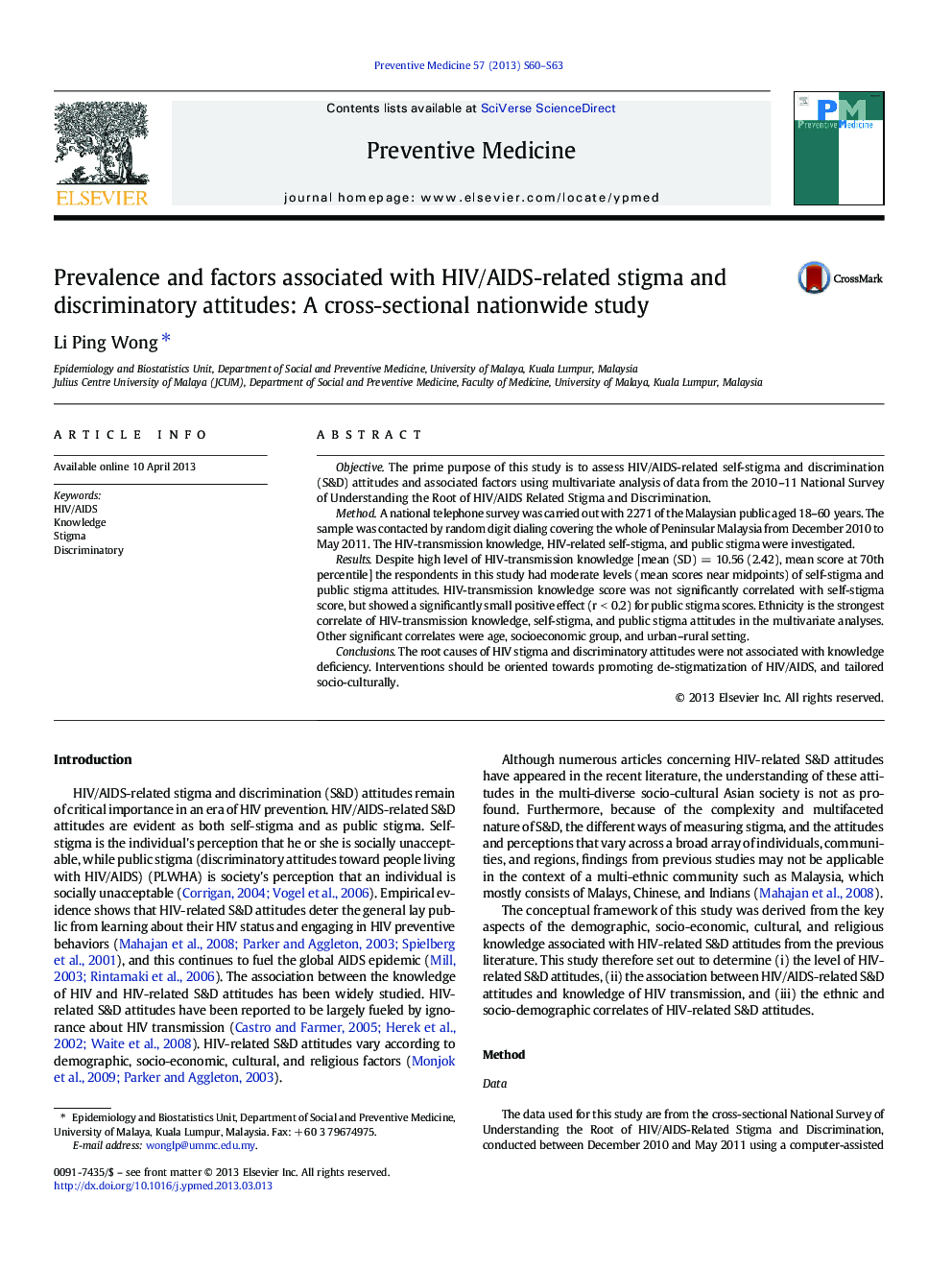| Article ID | Journal | Published Year | Pages | File Type |
|---|---|---|---|---|
| 3100639 | Preventive Medicine | 2013 | 4 Pages |
ObjectiveThe prime purpose of this study is to assess HIV/AIDS-related self-stigma and discrimination (S&D) attitudes and associated factors using multivariate analysis of data from the 2010–11 National Survey of Understanding the Root of HIV/AIDS Related Stigma and Discrimination.MethodA national telephone survey was carried out with 2271 of the Malaysian public aged 18–60 years. The sample was contacted by random digit dialing covering the whole of Peninsular Malaysia from December 2010 to May 2011. The HIV-transmission knowledge, HIV-related self-stigma, and public stigma were investigated.ResultsDespite high level of HIV-transmission knowledge [mean (SD) = 10.56 (2.42), mean score at 70th percentile] the respondents in this study had moderate levels (mean scores near midpoints) of self-stigma and public stigma attitudes. HIV-transmission knowledge score was not significantly correlated with self-stigma score, but showed a significantly small positive effect (r < 0.2) for public stigma scores. Ethnicity is the strongest correlate of HIV-transmission knowledge, self-stigma, and public stigma attitudes in the multivariate analyses. Other significant correlates were age, socioeconomic group, and urban–rural setting.ConclusionsThe root causes of HIV stigma and discriminatory attitudes were not associated with knowledge deficiency. Interventions should be oriented towards promoting de-stigmatization of HIV/AIDS, and tailored socio-culturally.
